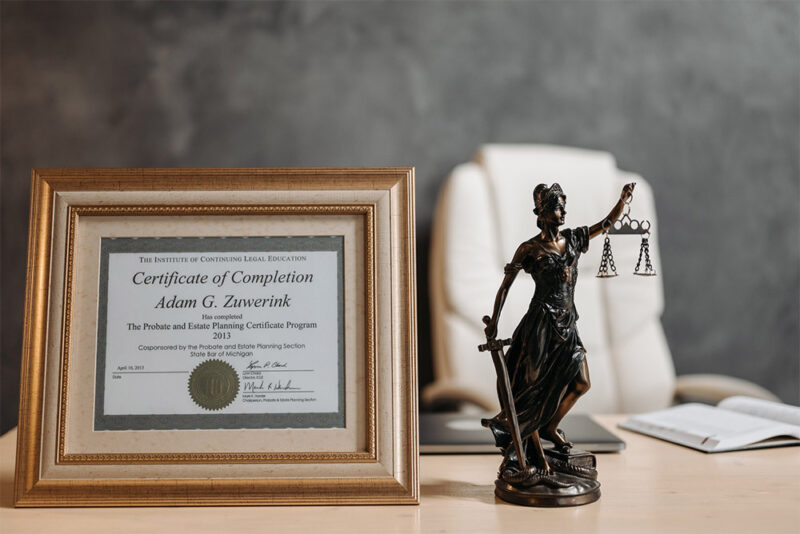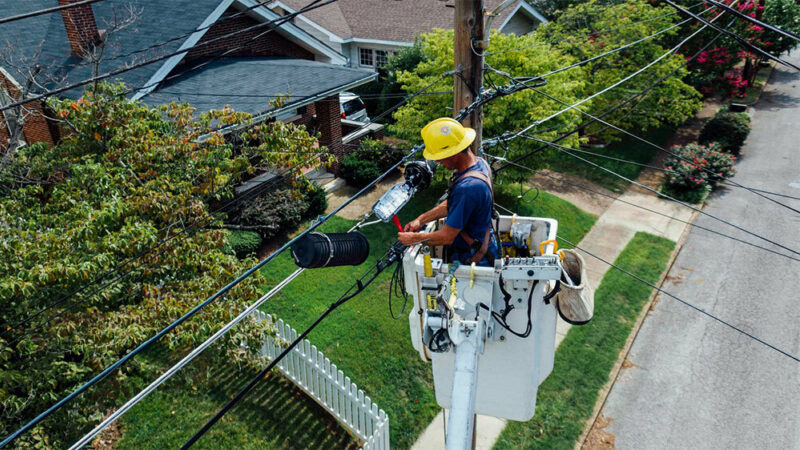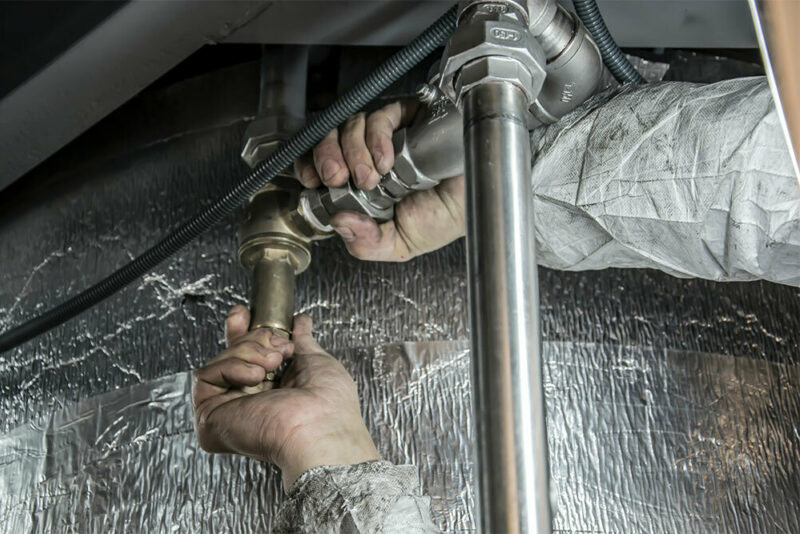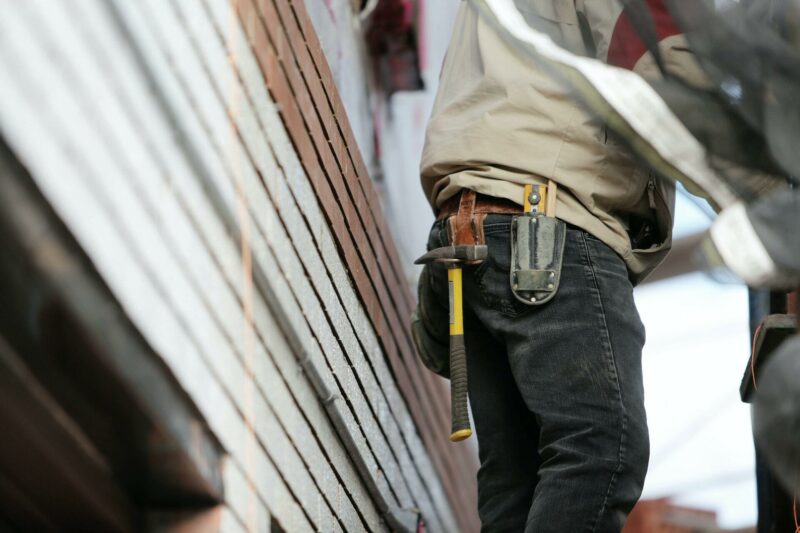

An occupational license shows that someone has education or experience in a job. Which home repair professions require licenses, and which don’t?
If you consult a doctor or lawyer, you probably want some assurance that this individual knows what they are doing. Both jobs require a license from the state. While a license does not guarantee that a particular professional will do a good job, it tells you that they have met the state’s requirements for education and training. Other jobs do not ask for nearly so much trust from consumers, so they do not need licenses.
Home repair professionals perform important functions that require various levels of expertise. The State of Texas issues occupational licenses for some, but not all, home repair professionals. Even if someone does not need a license for their work, they may need another type of credential from a city or county. They might have a certification from a private organization that is similar to an occupational license, but not legally mandatory.
The following offers an overview of Texas licenses for home improvement professionals.
An occupational license indicates that someone meets minimum standards set by a state agency. Even before you purchase a home, you’ll want an inspection. If the inspector finds problems, you’ll want to bring out a specialized tradesman to give an estimate for fixing or replacing it. This allows you leverage to negotiate the purchase price.
The specialized tradesman that you and your realtor choose need to be deeply knowledgeable in order to give an accurate quote. You don’t want to find yourself in a situation where you hired the cheapest roofer (or other specialist) and they only discover 10% of the damage.
Several types of credentials might be available for different jobs:

The Texas Department of Licensing and Regulation (TDLR) handles licensing for most home improvement professionals, with at least one exception.
The TDLR issues licenses for contractors who handle the installation, repair, and maintenance of HVAC and refrigeration systems. Several types of licenses are available, mainly based on the size of the system involved.
The TDLR issues multiple electrician licenses, beginning with the Apprentice Electrician licenses. Other licenses include Journeyman Electrician, Journeyman Lineman, Master Electrician, and Residential Appliance Installer.

Mold can be a serious problem in homes, leading to a variety of health issues. The TDLR issues a series of licenses for this type of work, including Mold Assessment Technician, Mold Remediation Contractor, and Mold Assessment Consultant.
The Texas State Board of Plumbing Examiners (TSBPE) handles licensing for plumbers. Licenses include Apprentice, Journeyman, and Master Plumber. In 2019, the Texas Sunset Advisory Commission recommended transferring the TSBPE’s functions to the TDLR. Legislation that would have done this failed to pass in the 2019 legislative session. For now, the TSBPE remains a separate state agency. The Legislature may revisit the issue in 2023.

While you might not directly hire a code enforcement officer, they are an essential part of many home improvement projects. Any time you or a contractor has to apply for a permit, someone will have to inspect your property to make sure you are complying with all applicable building codes. This license, issued by the TDLR, offers some reassurance that the person visiting your home has training in the codes they are enforcing.
Some home improvement professions do not require a license from the TDLR or another state agency. Other types of credentials might be required, though, such as registration with a local government agency. Some professional organizations offer certifications that, while lacking the force of law, indicate that an individual or business has met a high standard.
Homebuilders do not need a state license in order to practice their trade. Multiple designations are available from the National Association of Home Builders that provide recognition for skill and experience.
The TDLR does not issue licenses for general contractors. However, local licensing agencies may require a license, registration, or a surety bond to work within a city or county. This is often the same local agency that issues building permits.

Roofers do not need a license from the state. But they may obtain a certification from a private entity, the Roofing Contractors Association of Texas. Although Texas doesn’t require a roofer’s license, many of our roofers have them.
Unless a handyman is working on a system that requires a specific license, such as HVAC or plumbing, they do not need a state license. They might be subject to the same local registration requirements as general contractors, though.
Not only should your mortgage lender provide you funds to buy a house - they should also connect you with the best local real estate agents. These agents know who’s who in town. They’ll make safe and proven recommendations for home inspectors and home repair professionals.
This article was originally published on February 8, 2023 and last updated on February 8, 2023



The Wood Group of Fairway
Independent Mortgage Corporation
127 Lake Rd #300, Belton, TX 76513
Monday to Friday, 8:30am – 5:00pm
254.933.9500
Branch Manager:
Matt Wood, NMLS 317789
Texas Consumer Complaint and Recovery Fund Notice (View or Print)
The Wood Group of Fairway Independent Mortgage Corporation is licensed under the laws of the State of Texas and is subject to regulatory oversight by the Department of Savings and Mortgage Lending. Consumers wishing to file a complaint against a mortgage banker or licensed residential mortgage loan originator should complete and send a complaint form to the Texas Department of Savings and Mortgage Lending, 2061 North Lamar, Ste 101, Austin, TX 78705. Complaint forms and instructions may be obtained from the department’s website at sml.texas.gov. A toll-free consumer hotline is available at 877-276-5550. The department maintains a recovery fund to make payments of certain actual out-of-pocket damages sustained by borrowers caused by acts of licensed residential mortgage loan originators. A written application for reimbursement from the recovery fund must be filed with and investigated by the department prior to the payment of a claim. For more information about the recovery fund, please consult the department's website at sml.texas.gov.
Pre-approval is based on a preliminary review of credit information provided to Fairway Independent Mortgage Corporation which has not been reviewed by Underwriting. Final loan approval is subject to a full Underwriting review of support documentation including, but not limited to, applicants’ creditworthiness, assets, and income information, and a satisfactory appraisal.
Equal Housing Opportunity. All Rights Reserved.